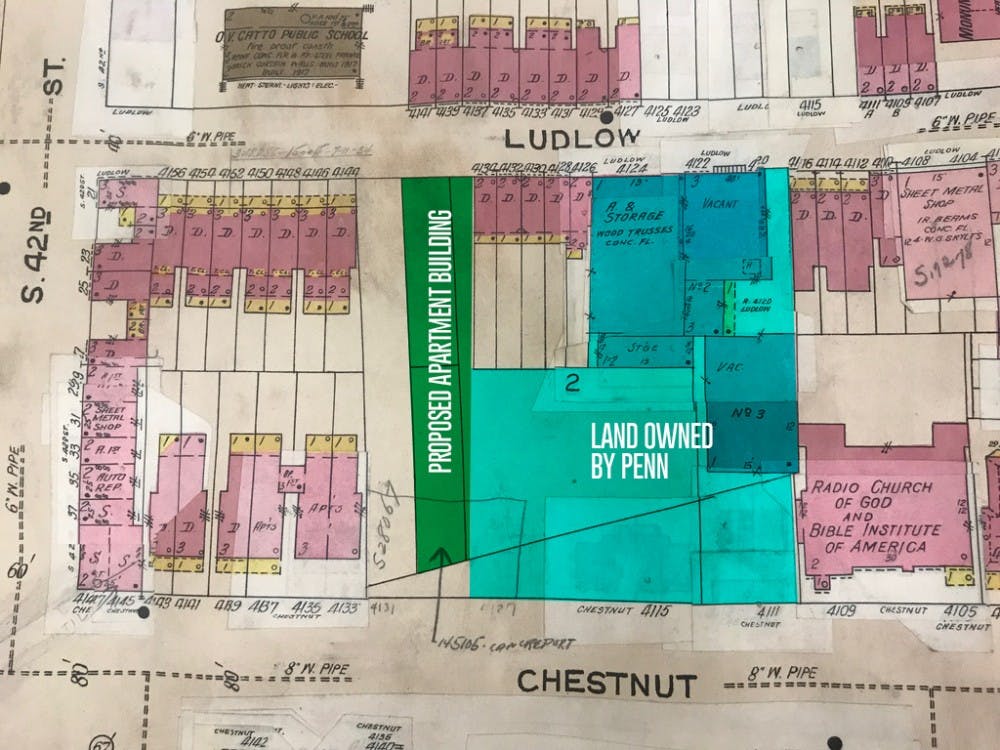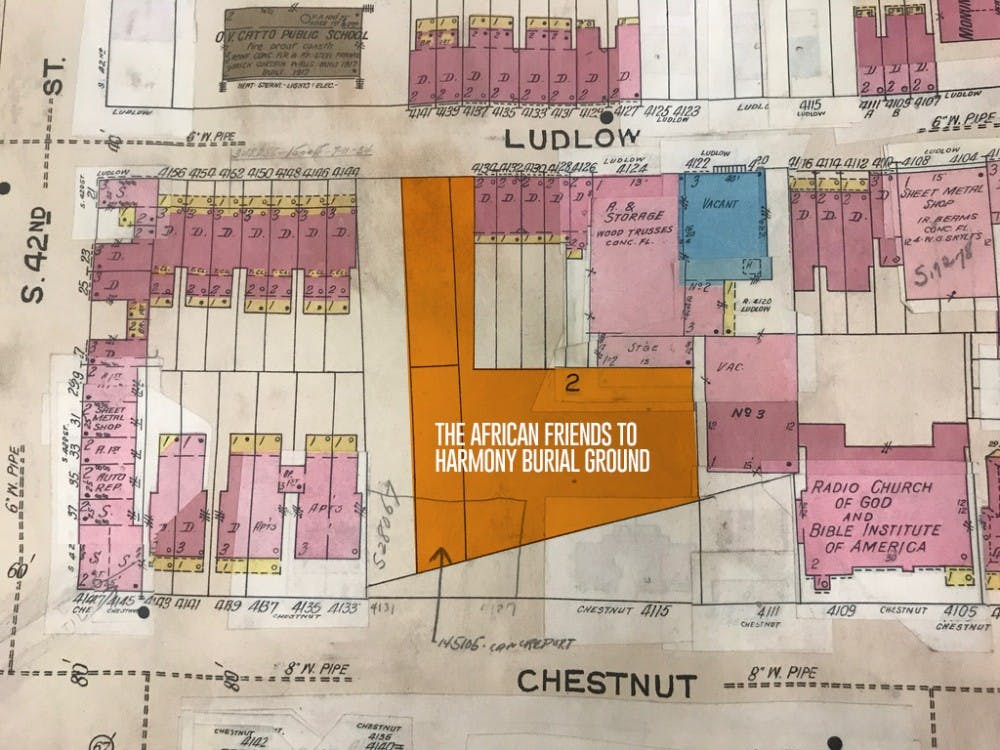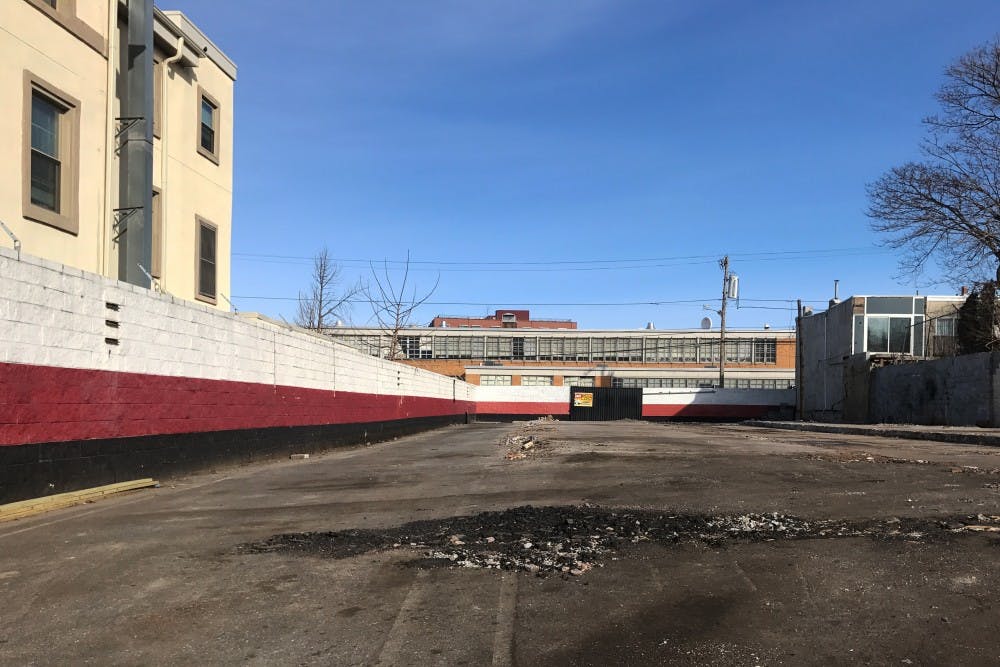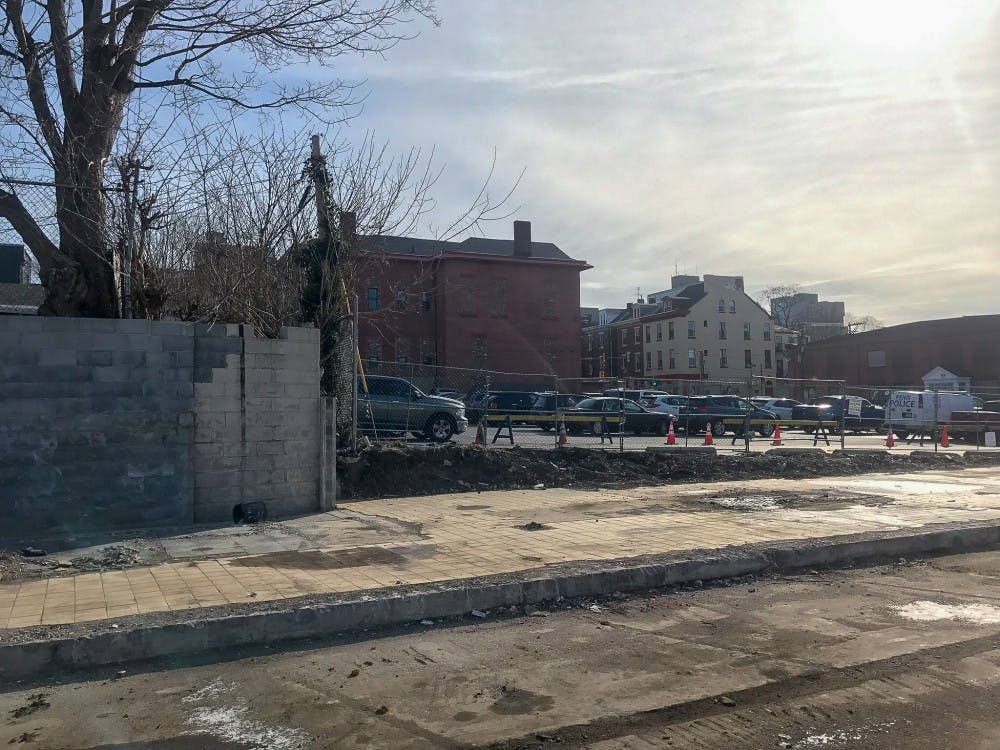
Map from University Archives and Record Center
The oldest African American cemetery in West Philadelphia could be lying beneath a Penn parking lot and the remnants of a former car wash near 41st and Chestnut streets. Now, a Philadelphia business wants to turn the site into a new apartment building.
Maps dating back to 1886 indicate that the cemetery was located at 4125 Chestnut St. and extends eastward to a parking lot that Penn now owns and operates. Many experts say it is unclear whether those buried in the cemetery are still underground or whether they have been relocated elsewhere.
“From my estimation looking at it, Penn owns roughly two-thirds, maybe three-quarters, somewhere in that range, and the other third or quarter is being developed now [for the apartment building],” Penn University Archivist and Record Center Office Manager and Senior Archivist Jim Duffin said. “More than the majority of the cemetery is owned by the University – it’s the parking lot.”

Director of the University Archives and Record Center Mark Frazier Lloyd said it’s currently unclear whether there are still any remains at the location at this time. However, Lloyd also added that he had also not seen any documentation that the remains had been relocated.
“It’s entirely reasonable that when [the site] was closed as a cemetery, that all of the human remains were removed at that time – say in the 1920s or the 1940s,” Lloyd said. “Now if that’s not true, if they just paved it over, then the present-day owners of the land have a problem. A very big problem.”
The property was purchased in 1826 by the group African Friends to Harmony, which President of the Philadelphia Archaeological Forum Doug Mooney said he believes was an early mutual aid society.

“These [bodies] are in many ways the founders of the black community in West Philadelphia," Mooney said. “They deserve to be respectfully treated. These are people. They are not trash that should be dug up and thrown in a landfill somewhere.”
The lot was first identified as a potential cemetery at the end of January and Mooney said it is not registered on the Philadelphia Register of Historic Places. Officials in the Department of Licensing and Inspections have issued permits for the apartment’s construction, but Mooney believes that construction on the building would disrupt the burial ground, if bodies were still intact.
In order to continue with construction, developers of the apartments will have to petition the Orphans' Court Division of the Philadelphia Court of Common Pleas for permission to disturb the land.
These discoveries come just weeks after Penn has seriously started to reexamine its history with the black community in Philadelphia. An independent study supported by Penn’s History Department discovered evidence of 20 of 28 investigated founding trustees holding ties to the slave trade.

2017 College graduate Matthew Palczynski, who helped work on the research project, said the burial site has historic significance and could potentially be traced to nearby Monumental Baptist Church, located on 49th and Locust.
“This is a relevant conversation given the fact that African Americans have been a part of the history of Philadelphia since its founding, both in aspects related to slavery and freedmen,” Palczynski said.
A church employee said Rev. Wendell Mapson, senior pastor of Monumental Baptist Church, is interested in contacting the city and finding out more about the land’s history.
Duffin said he was surprised the cemetery had gone unnoticed for so long, but said it was not the first time a remnant of the African American community was forgotten.
“Obviously if there was an African American community there, they need a place to bury people, so they created their own burial ground,” Duffin said. “Unfortunately, a lot of these African American burial grounds were forgotten.”

Palczynski said he believes the University should use its resources to help preserve the site and formally determine and excavate any remaining bodies.
“We are really focusing as a University on this past," Palczynski said. "We almost have a duty to make sure something so close to our campus isn’t destroyed, as well."
The Daily Pennsylvanian is an independent, student-run newspaper. Please consider making a donation to support the coverage that shapes the University. Your generosity ensures a future of strong journalism at Penn.
Donate







